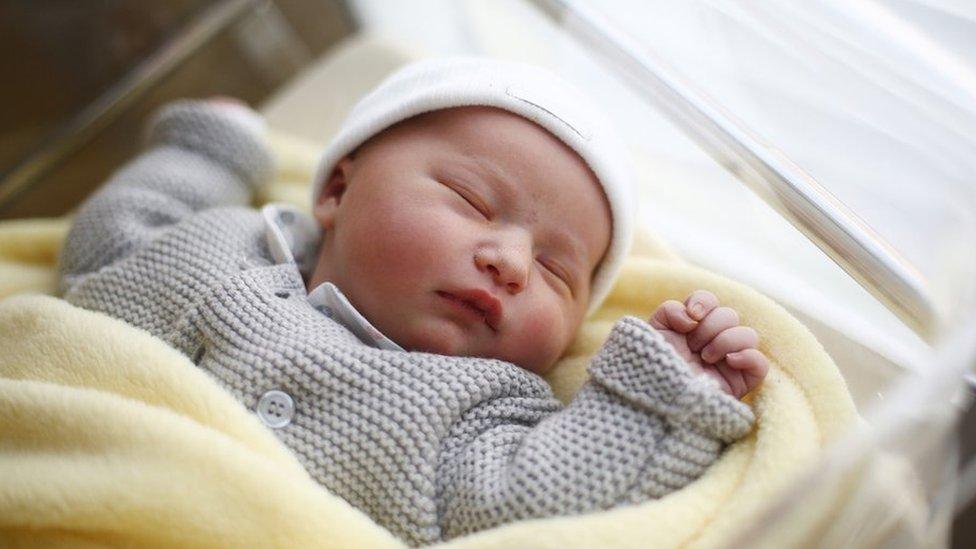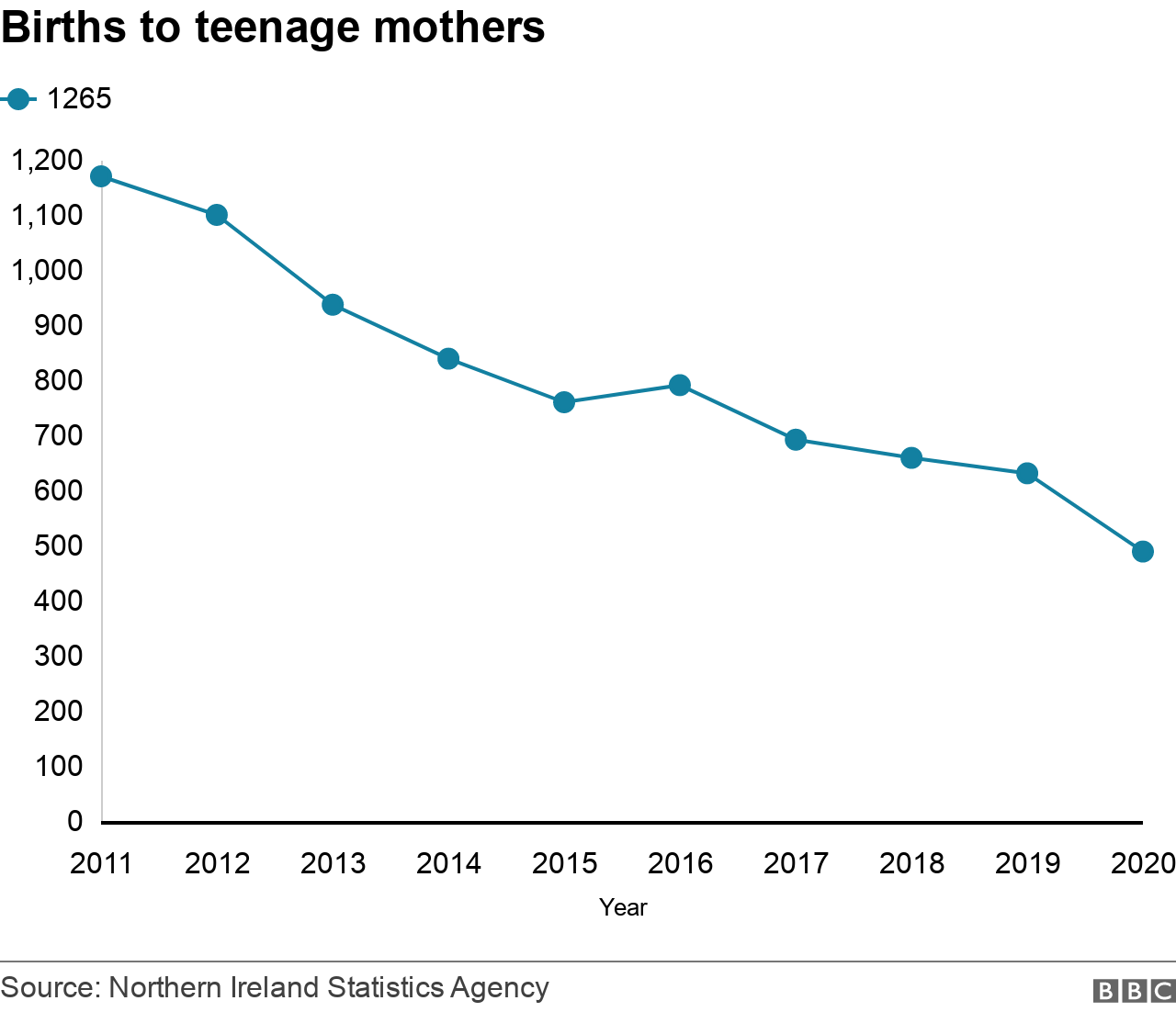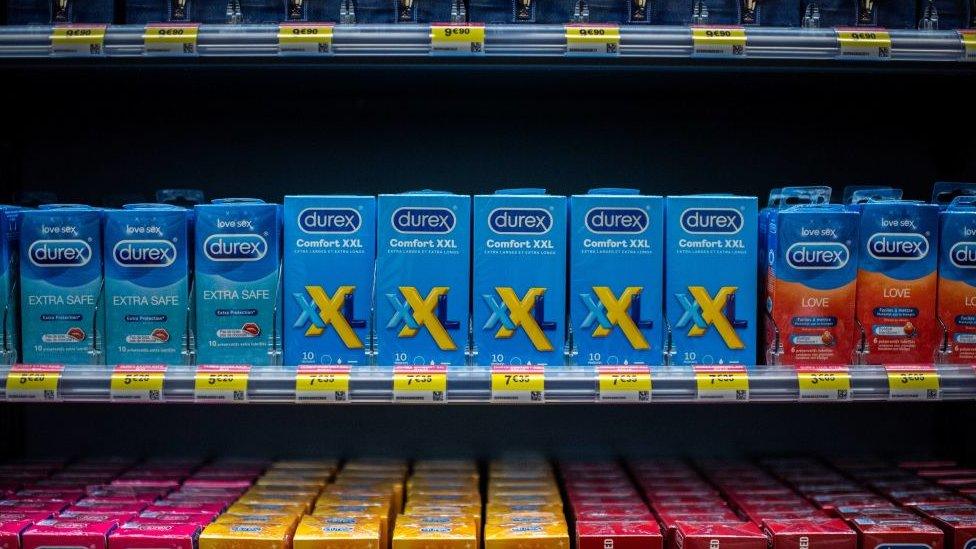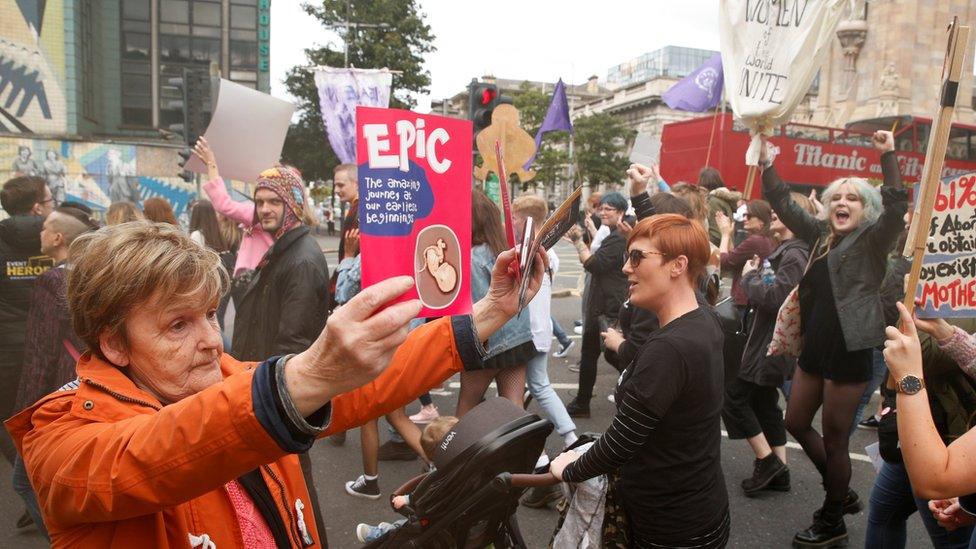Why are there fewer teenager mothers in Northern Ireland?
- Published

Fewer teenagers are having babies than ever before in Northern Ireland
For the first time since records began, the number of teenagers giving birth in Northern Ireland in a single year has fallen below 500.
The latest figures show, external that in 2020, there were 489 live births to mothers aged 19 and younger - down from 631 in 2019.
That is a big drop compared with 10 years ago, when the figure was 1,170.
So what factors explain this drastic decrease and and ongoing trend of fewer teenagers having babies?
You might immediately think the coronavirus pandemic is a factor: After all, it was harder to meet people and have children when the country was in lockdown.
But the first lockdown didn't come into force until late March 2020, so only children born at the very end of the year would have been conceived when stay-at-home orders were in place.
Dr Áine Aventin, senior lecturer in sexual and reproductive health at Queen's University Belfast, says a number of factors explain the big decrease in teenage pregnancy rates in the past 10 years.
Contraception and sex education
"People in general can access contraception more easily now, you can buy it in supermarkets now, whereas that wasn't the case 20 years ago," said Dr Aventin.

"There is that side of things, where people are taking more control of their own contraceptive use and taking more control of when they have children."
In terms of relationships and sex education, Dr Aventin says that while it remains imperfect it has increased and she also notes that much more information is available online for young people to access for themselves.
"That whole change and way of getting information over the past decade or so has really changed things," she says.
Societal changes
Teenage girls are now more likely to remain in education after the age of 16 - is this a factor in them being less likely to have children?
"Women staying in education and going on then to employment and being economically independent is certainly a big part of it as well," said Dr Aventin.

Contraception is more widely available than ever before
Tied in with this is the general trend of women having children later in life.
The most recent figures show the average age of a new mother in 2020 was just over 31, whereas in 1990 it was just under 28.
Almost a quarter (24.9%) of births were to mothers aged 35 or older, up from 10.2% 30 years ago.
"The trend overall in terms of intended pregnancies, has been that women are having children older," said Dr Aventin.
"In the 1990s and early 2000s it might have been more common for women to have children in their earlier 20s or teens."
Rate continuing to fall?
Northern Ireland's abortion laws were for decades much stricter than the rest of the UK, but in October 2019 abortion was decriminalised after a vote at Westminster earlier in the year.
In March 2020 the UK government published details of the new legal framework for abortion services, although it was left up to the NI Department of Health to commission full services.
In April some of Northern Ireland's health trusts began operating interim services up to the first 10 weeks of pregnancy, while the UK government continued to provide funding for women in Northern Ireland to travel to England for abortions during the coronavirus pandemic.
However, there is also the added factor of women who purchase abortion pills online, which was also illegal before abortion was decriminalised.
"There is a hidden statistic there," says Dr Aventin.
"There are estimates out there in terms of how many women would have been accessing these medication before it was legal to do so.
"But we're just not actually clear about how many women were accessing them then and are accessing them now."
Official Department of Health figures showed there were 22 abortions in health service hospitals in Northern Ireland in 2019-20 - two of which were on women aged 24 and under.
"That is not representative, in my view, of how many abortions there were," says Dr Aventin.
"I would say there were many more women accessing medication online."
Asked whether the birth rate would continue to drop, Dr Aventin suggests there was still scope for further decreases.
"There will always be women who decide to have children early and there will always be unintended pregnancies, that's just the way of things, but I think it will still continue to decrease."
- Published8 June 2022
